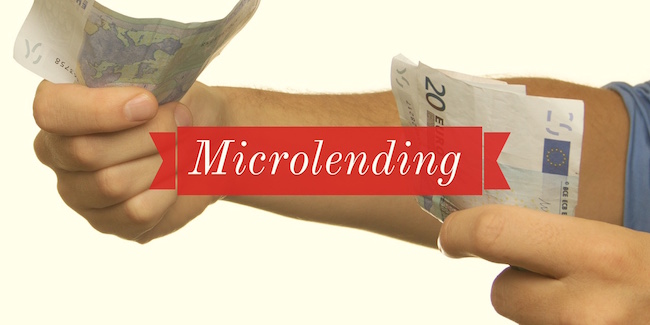If you want to start a business, you’ve probably thought of using your savings, asking friends and family for help, putting expenses on your credit card, and applying for a traditional bank loan. The first two options work well, provided you’ve got a little socked away and your nearest and dearest believe in your dreams as much as you do. The third could put your personal credit in serious jeopardy, not to mention racking up some crazy interest charges. The fourth, traditional bank loans, aren’t always easy to come when you’re an entrepreneur (perhaps surprisingly). That’s where microloans come into the picture. Read on to learn more about how microlenders can help you get that $10,000 or $20,000 you need to cover your costs to get your business going.
How Do Microloans Work?
If you’re in the early stages of funding your business, you can borrow up to $35,000-50,000 from a small, community-based nonprofit organization called a microlender. These work with the SBA (Small Business Association), and there are about 160 of them throughout the country. Think of them as intermediaries monitored by the SBA. Of course, there are also microlenders who receive their funding from state or local governments instead of the SBA, and still others who operate through philanthropies. You can search for one based on your geographic area or other criteria specific to your business. Once you have a microloan, which has a short time period and a low interest rate, you’re ready to take care of those startup expenses and start profiting so you can pay back the loan. Even those who need just a little capital or who have a limited credit history are eligible to apply–in fact, those descriptions apply to most of those who choose microloans in the first place.
How Do I Get Started?
Start by determining what your expenses are going to be. You may want to sit down with an accountant so that they can look at your business plan and help you project costs during the initial startup period. Once you know how much money you’ll need, it’s important to ensure that your projected profits will allow you to make monthly payments on the loan. Even if you don’t want to work with an accountant, you do need to create a business plan using a template. Then you’ll need to begin searching for the microlender that’s right for you. You can find one in your local area by talking to other business owners or business groups, and you can also check with the SBA’s microlending directory online. Be prepared to put up collateral, like your car or home, and to invest some of your own money. For most lenders, you’ll need a decent credit score–anything under 575 probably won’t cut it.
What Should I Look for in a Microloan?
You’ll want to make sure that the microloan you sign doesn’t require the microlender to sign off on every single business decision you make. While they deserve to understand your business plan and to be paid in a timely fashion, the way you run your business should ultimately be up to you. Of course, the interest rate should be significantly lower than you would expect from a credit card–think under 12%. You also need to weigh the risks and benefits of signing before you actually put ink to paper. If you’re not able to pay back the loan, you might very well have to file for bankruptcy to save your collateral, which will destroy your credit score for years. Microloans can be a fantastic option for the business savvy; just don’t bite off more than you can chew.







